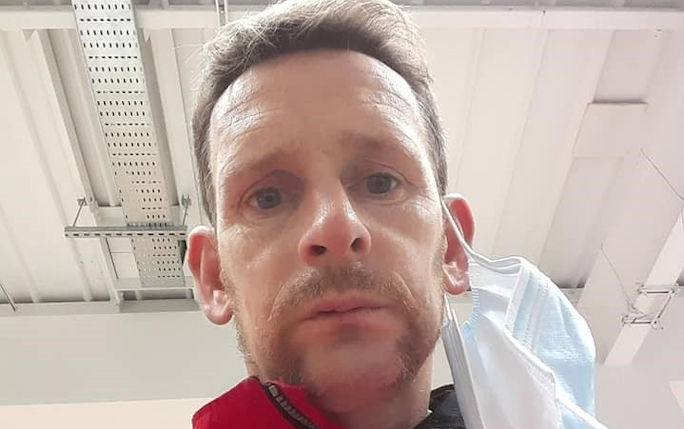In the shoes of a Consultant in Microbiology and Infectious Diseases

Liverpool School of Medicine alumnus Brendan Healy (MBChB, 1998) has certainly had a challenging year. Now working in South Wales as a Consultant in Microbiology and Infectious Diseases, he and his team have been at the forefront of testing efforts. With the stakes high and resources limited, he has had to make some tough decisions. Here he reflects on the importance of kindness, gratitude and openness.
I am always extremely grateful for the training and teaching that I received as an undergraduate at Liverpool and during my postgraduate house officer year at Royal Liverpool University Hospital. It was during that house officer year that my interest in infectious diseases was piqued through a number of interesting cases and a dedicated and very competent microbiologist called Jim Anson.
The COVID pandemic has created an enormous workload for me and my colleagues and as we are a small specialty this has certainly taken its toll. Throughout the pandemic we have been using our training to try to keep the situation under control as best we can. We have needed to cope with the fear and anxiety that has been present throughout and deal with the challenges of limited resource in all areas. Testing, testing kits, testing reagents, PPE, medication, swabs…. You name it and at some point we have been short of it.
From my perspective, an interesting part of the pandemic has been the issue of laboratory processing. For anybody that has worked in a resource limited setting it is easy to appreciate how lucky we are with the provision of diagnostic services in our country. Blood results, microbiology results, radiology are all delivered routinely and with assurance. In many instances results from these tests seem to come to us as easily as turning on a tap and receiving water.
However, like water, the processes behind that delivery are manifold and complicated. In this pandemic those that work in the laboratory have moved mountains to deliver testing capacity using, initially, an already stretched skeleton workforce.
We had a diagnostic test routinely available for a virus that had only just been discovered in a very short space of time. And whilst the capacity has taken time to build, what it has also shown is how lucky we are on a day-to-day basis, how we too often take these services for granted and how indebted we are to such an amazing, dedicated and skilled workforce in the lab.
Throughout my career I had the good fortune to work abroad in settings where resources were limited. Observing at St John’s Hospital in Malawi, working in Lesotho or more recently in Sierra Leone with the Kings Partnership during the Ebola epidemic.
Although I only worked there for a short period (my contribution was minimal compared to the amazing efforts of others that I had the privilege to work with) I still learnt a huge amount from the experience. This has helped me enormously in my work and proved invaluable in making decisions in relation to this situation.
Now that we’re in the second wave the workload for me and my colleagues has not diminished and the stress of the working environment, lack of rest and the relentless nature of the pandemic creates tension throughout the system. It has never been more important to be kind to one another, to respect each other’s opinion and to listen when challenged on any point.
But in these times this can be difficult to achieve always and when we fail in that respect it is important to say sorry. To everybody that has worked through this pandemic in every specialty with all of the challenges that it has thrown up I commend you and wish you well in coping with the forthcoming challenges, whatever they may be.
If you have a story that you’d like to share you can get in touch via: alumni@liverpool.ac.uk.